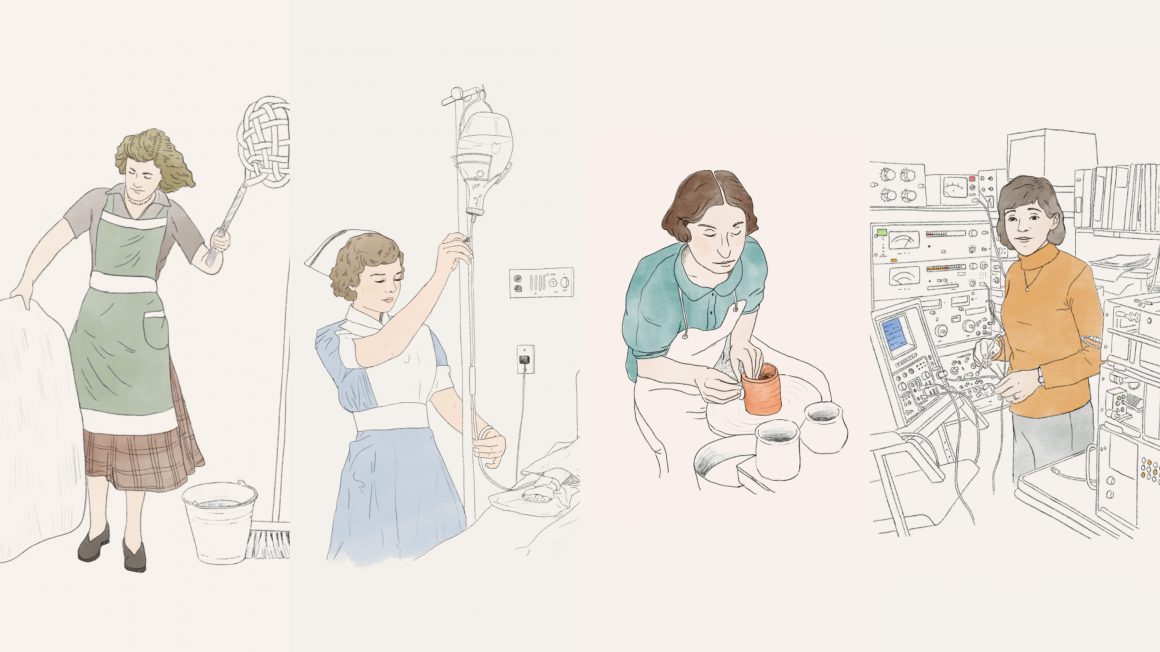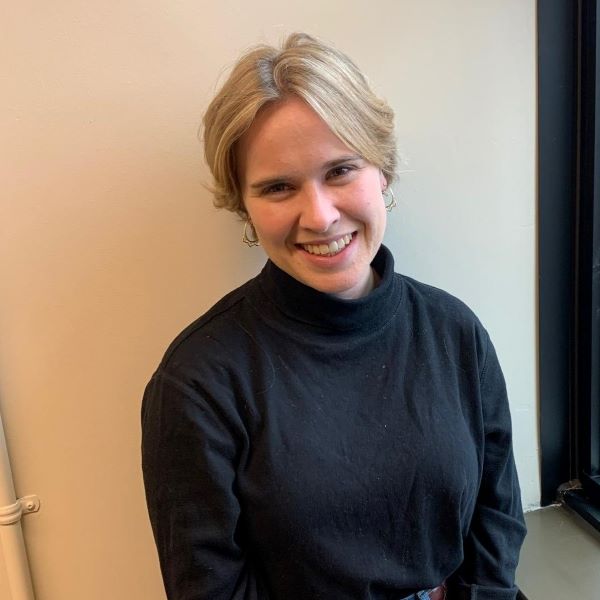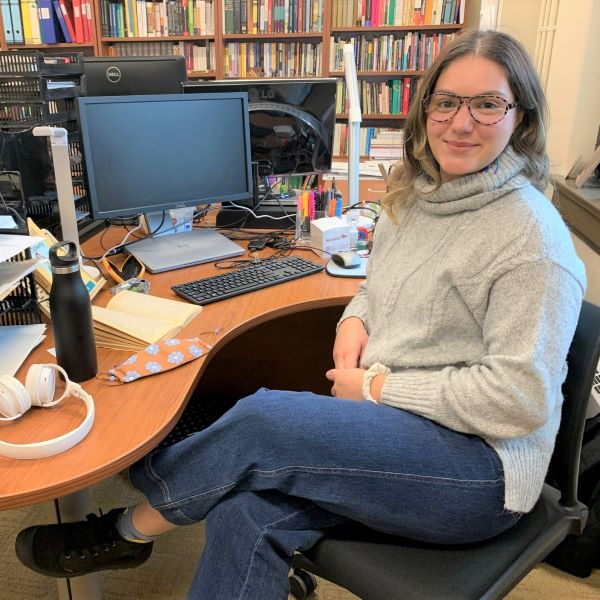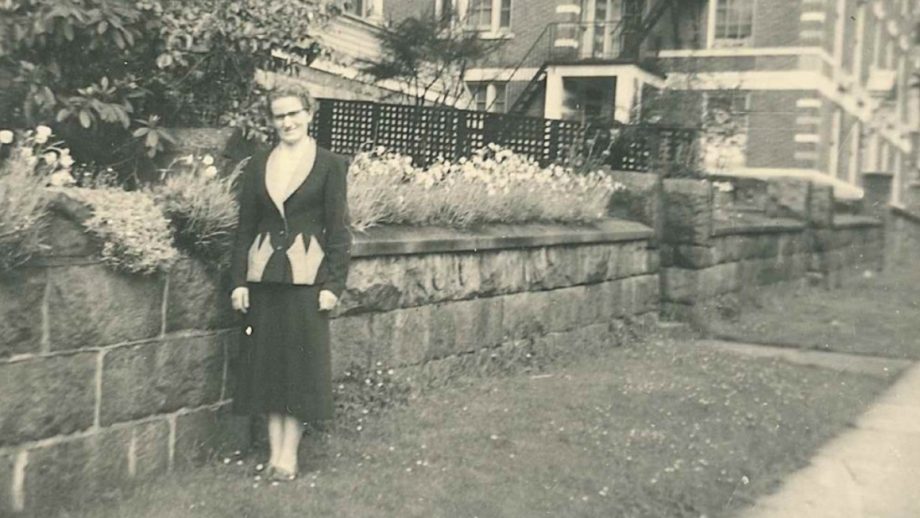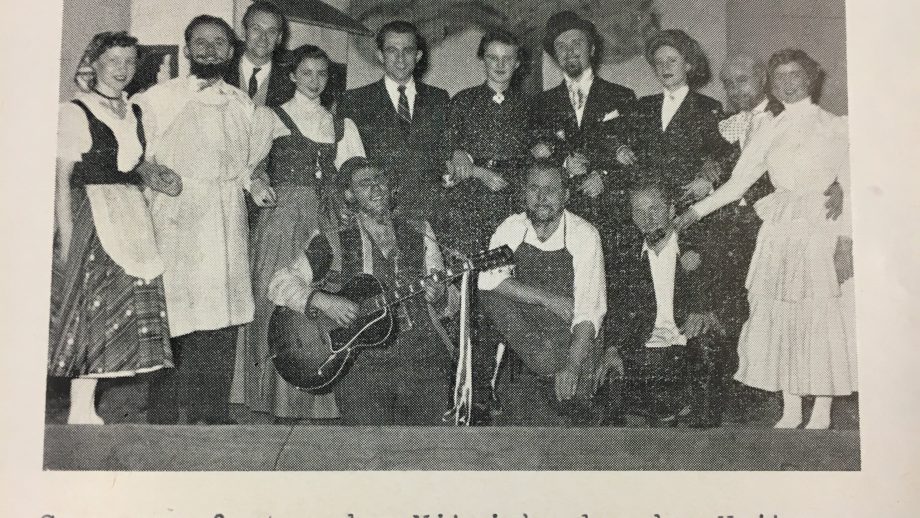German-Canadian Studies (GCS) at The University of Winnipeg has published an interactive oral history resource that provides a glimpse into the daily life of four 20th century immigrant women.
“What They Can Teach Us: Stories from German-Canadian Women, 1950-1993” is an online trilingual (English, German, and French) collection of edited interview transcripts and unedited audio recordings capturing the perspectives of four women—Alma, Anneliese, Barbara, and Lisa—who migrated from post-war Germany to Canada in the early 1950s in search of a better life.
The interviews were conducted by Dr. Alexander Freund, Chair of German-Canadian Studies, as part of his master’s research. This is the first time these materials are available publicly online.
We strive to help students understand that the narratives they read in their textbooks are based on historians’ judgments about how to read a specific primary source.
Sofia Bach
The collection, which went live May 1, was created by GCS Program Assistant Sofia Bach and Project Assistant Claudia Dueck, with assistance from illustrator Alexe Normandin and translators Amy (Amine) Gundogdu and Caroline Best. The work was funded by UWinnipeg’s German-Canadian Studies Program and the Waterloo Centre for German Studies in Ontario.
“One of our goals was to be able to integrate women’s experience into Canadian History (with a big ‘H’),” Bach said. “Being able to collaborate with a multidisciplinary team of talented young women made this endeavour so much more satisfying.”
Preparing the collection involved transcribing and summarizing the interviews, enhancing the audio quality, and tracking down surviving interviewees or next of kin to request copyright permissions.
“It was meaningful to connect with children of the interviewees and be able to hand them a transcript of an in-depth interview with their parent that had since passed away,” Dueck said. “In one instance, a child of an interviewee sent me a heartfelt email expressing their delight and saying that of all the things, physical and monetary, left to them by their mother, this interview was the greatest gift received.”
International accessibility guided the work of creating the collection.
“Claudia and I wanted to create a resource that would be accessible to as many students and instructors as possible, and that meant making it available in English, French, and German,” Bach said.
The collection’s intended audience is high school and university students and their history, social studies, and German teachers. Cultural institutions and community organizations will also find value in the materials.
“The basic premise of the website is to provide a curated collection rather than a complete archive of interviews,” Bach said. “The aim is to provide a resource that can be implemented in a variety of secondary and post-secondary classrooms without excessive preparation.”
The website includes three lesson plans based on passages from the interviews. The lesson plans help bridge the space between the history taught in textbooks and a history that includes the perspective of migrant and working-class women’s experiences as reflected through the oral histories of German women in Canada.
“Keeping the excerpts from each of the four transcripts to a length that would make it accessible as a teaching resource but also allow full expression of the women’s narratives was challenging,” Bach said.
Bach and Dueck hope the collection encourages the use of oral history accounts in the humanities to correct the traditional undervaluation of women’s roles and perspectives. Oral histories enrich learning because of their ability to capture lived experience.
“Students are presented with seemingly authoritative, neutral, and true accounts of the past in textbooks,” Bach said. “Through the activities that we provide in our lesson plans, we strive to help students understand that the narratives they read in their textbooks are based on historians’ judgments about how to read a specific primary source.”
“Learning to critically evaluate primary sources helps students to critically evaluate textbooks and other seemingly authoritative texts,” Bach explained. “This allows students to challenge hegemonic views and ask about the experiences and achievement of underrepresented groups.”

